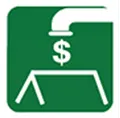
The 10 C’s of An Asset Based Loan for Business
This article attempts to explain some of the common elements of a accounts receivable factoring or an asset based loan for business. Cheques signed by customers must always be honoured. NSF cheques decrease the customers’ credit worthiness. Cheques signed by customers must always be honoured. NSF cheques decrease the customers’ credit worthiness.
Customers of an Asset Based Loan:
1. Customers (or debtors) of the factor’s clients must always be well spread, under 90 days and always credit approved up to the high credit limits requested by clients.
2. Consignment sales by clients to their customers / debtors are unacceptable. All sales must be stand alone final sales.
3. Cheques signed by customers must always be honoured. NSF cheques decrease the customers’ credit worthiness.
4. Character or the Credit reputation of the customers must be honourable. All their financial commitments need to always be honoured and they must not delay payment of their invoices beyond the due dates.
5. Conceptualization generally by customers of how well they understand their business and have been operating for. Their general reputation is in the business community is vital.
6. Cancellation of orders by clients’ customers should ideally be kept to a minimum.
Clients of an Asset Based Loan:
7. Confirmation or verification telephonically (or by email) of all goods delivered or services rendered by clients to their customers must be obtainable and is essential. This gives the client and the factor their security knowing that payments will be made on all overdue undisputed invoices. The completion of all orders by clients is essential with no progress payments being made in the future can be allowed. Each order must be completed and stand alone.
8. Capacity is the ability of clients to perform, manufacture, import or provide the service in the required quantities and qualities in the correct packaging at the correct price delivered at the right times to the correct customers’ delivery points without onerous warrant or right of returns issues.
9. Capital refers to the clients’ available assets in their businesses. Examples are accounts receivable, inventory, equipment, vehicles, patients or any goodwill.
Clients and Customers:
10. Conditions in the market may affect businesses. For example seasonal fluctuations, political manifestations or changes, climate changes, increased or decreased competition or exchange rate fluctuations may all have an affect on clients ability to deliver and on customers ability to pay.






